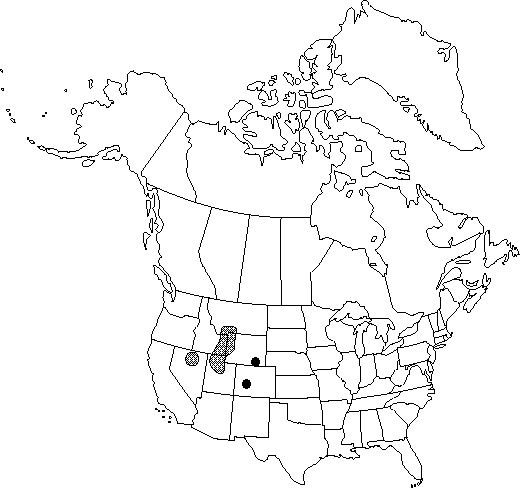familyRanunculaceae
genusRanunculus
subgenusRanunculus subg. Ranunculus
sectionRanunculus sect. Epirotes
speciesRanunculus jovis
Difference between revisions of "Ranunculus jovis"
Bull. Torrey Bot. Club 27: 261. 1900.
Endemic
Treatment appears in FNA Volume 3.
FNA>Volume Importer |
imported>Volume Importer |
||
| (One intermediate revision by the same user not shown) | |||
| Line 49: | Line 49: | ||
|publication year=1900 | |publication year=1900 | ||
|special status=Endemic | |special status=Endemic | ||
| − | |source xml=https:// | + | |source xml=https://bitbucket.org/aafc-mbb/fna-data-curation/src/2e0870ddd59836b60bcf96646a41e87ea5a5943a/coarse_grained_fna_xml/V3/V3_49.xml |
|genus=Ranunculus | |genus=Ranunculus | ||
|subgenus=Ranunculus subg. Ranunculus | |subgenus=Ranunculus subg. Ranunculus | ||
Latest revision as of 21:49, 5 November 2020
Stems erect, 2.5-7.5 cm, glabrous, each with 1-4 flowers. Roots tuberous, 2.5-5 mm thick. Basal leaves persistent, blades obdeltate in outline, 1-2.8 cm, segments 0.2-0.6 cm wide, deeply divided into 3 oblanceolate segments with lateral segments often again lobed or parted, base long-attenuate, margins entire, apex rounded. Flowers: pedicels glabrous; receptacle glabrous or sparsely pilose; sepals 3-7 × 1.5-3 mm, abaxially glabrous; petals 5, 6-12 × 2-5 mm; nectary scale glabrous. Heads of achenes globose to cylindric, 3.5-8 × 3-7 mm; achenes 1.1-1.4 × 0.8-1.1 mm, finely pubescent; beak subulate, straight, 0.2-0.8 mm.
Phenology: Flowering spring–summer (Apr–Jul).
Habitat: Dry, open slopes, often around persistent snowbanks
Elevation: 1700-3000 m
Distribution

Colo., Idaho, Mont., Nev., Utah, Wyo.
Discussion
Selected References
None.
Lower Taxa
None.